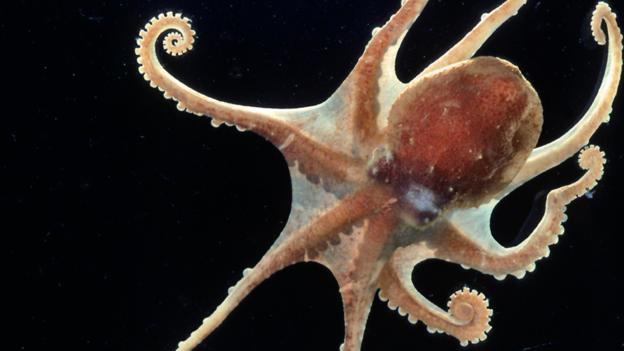
(Copyright: Science Photo Library)
When American soldiers were killed in Iraq by improvised explosive devices, or IEDs, it was the slow, bureaucratic, centralised nature of the Department of Defense that failed them, says Rafe Sagarin, a marine ecologist at the University of Arizona. It was only once soldiers were authorised to make their own decisions – a move known as the Petraeus Doctrine, after the general who invented it – that they could communicate effectively with locals in order to find out in advance where IEDs might be.
Why was a marine ecologist suggesting ways of protecting armed forces? Well, according to Sagarin, the Petraeus doctrine is exactly the sort of thing an octopus would do. Despite its well-organised central nervous system, many of an octopus's reactions are decentralised. Its individual cells make their own decisions for dealing with the immediate situation – enabling, for example, the invertebrate's famously varied camouflage. Switching to this kind of adaptive tactics provided greater protection for soldiers in Iraq.
Read More........................
No comments:
Post a Comment